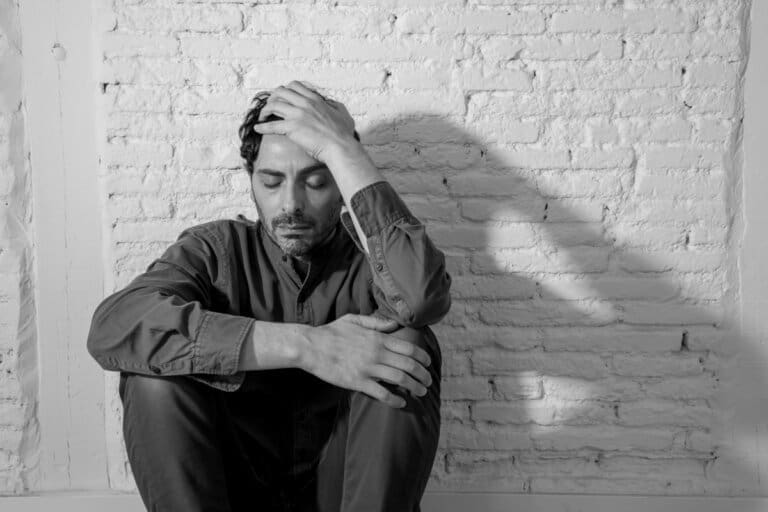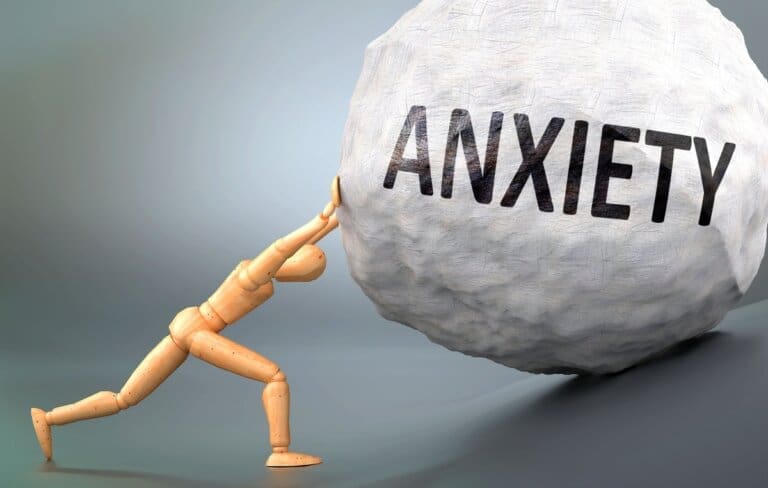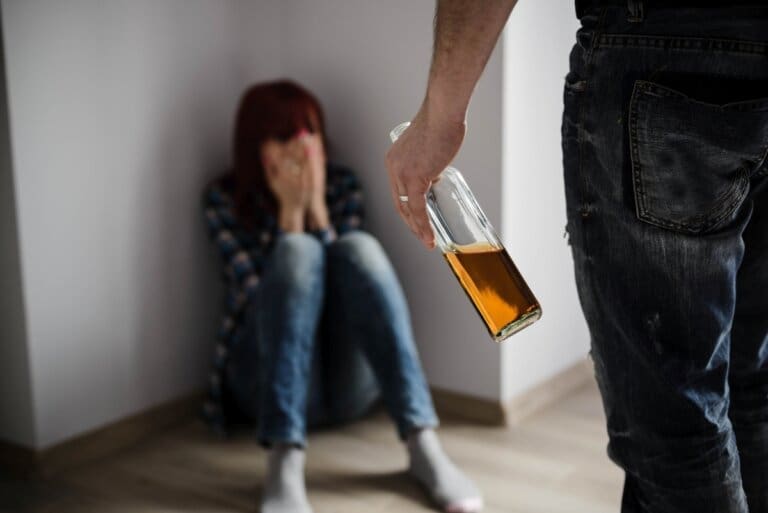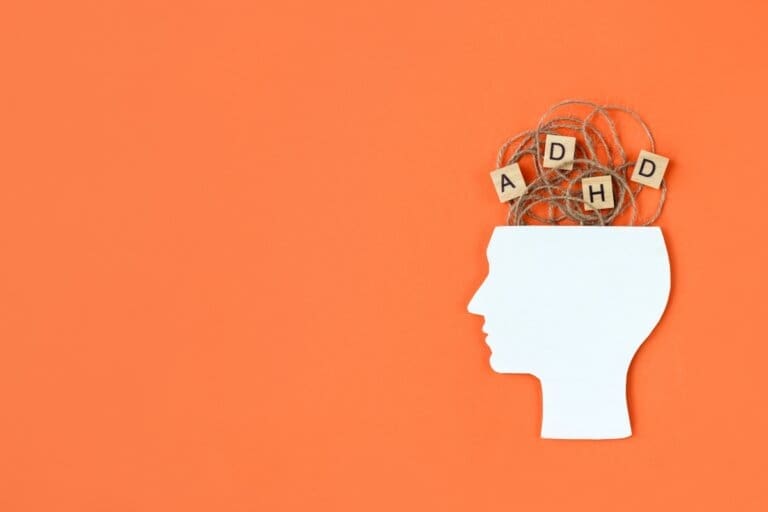Shame and Addiction – Its Impact & How To Overcome It October 9, 2023 Prosperity Haven Addiction Treatment Shame and guilt are both considered negative emotions. No one wants to feel ashamed or guilty. They are feelings that all...
Shame and Addiction - Its Impact & How To Overcome It
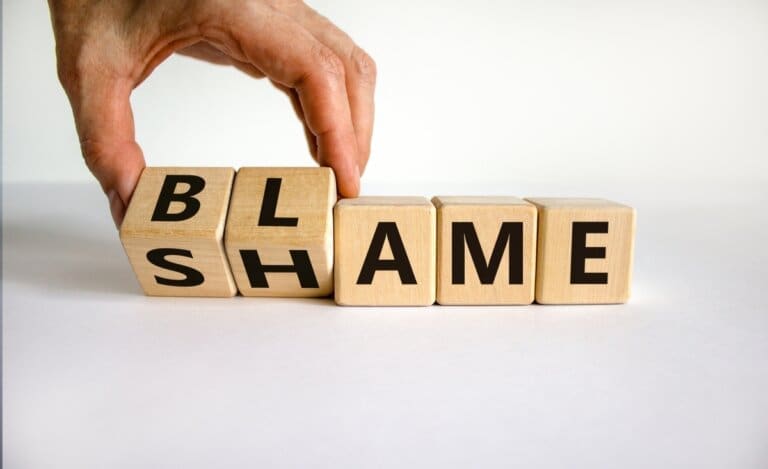
Shame and guilt are both considered negative emotions. No one wants to feel ashamed or guilty. They are feelings that all of us struggle with on some level. After all, they are normal human emotions. A healthy individual can process these emotions and work through them in a way that does not negatively affect them. However, others can suffer excessively from these emotions and may find themselves in an inescapable cycle of guilt and shame that can play a role in addiction.
Guilt Versus Shame
While the two terms are often used interchangeably, it is important to distinguish the differences between guilt and shame. Guilt is a negative feeling that you experience when you have done something wrong. If you were late to a meeting or forgot to clean up after dinner, you may feel guilty for your actions. Shame is a negative feeling that you experience about yourself as a whole. A simple mistake means that you are a bad person. Whereas guilt is a feeling defined by an action, shame is a feeling defining you as a person.
When someone cannot properly process feelings of shame in a healthy way, it begins to affect their self esteem. Their entire self worth comes into question and they begin to feel hopeless and worthless. As such, they seek an escape. Alcohol and drugs may offer an easy answer to their feelings of inadequacy. These substances allow them to feel numb and completely avoid the negative feelings they are experiencing.
This level of escape starts to feel like the only way they can cope with their life. Their substance abuse continues to grow and evolves into a full blown addiction. As they drink or use drugs, they begin to experience the feelings of shame and guilt that so often come with such behaviors. However, they also know how awful they will feel once they stop using, when that ability to numb their feelings disappears. Thus, they are caught in an endless loop of guilt and shame.
Is Shame Harmful?
Shame makes a person question their entire self worth. It makes the person view themselves as “bad”. The problem with that is that it is an entirely flawed way of thinking. Life is not black and white. It’s not all good or all bad. Just because your actions may be negative, that does not make you a bad person. You can make a mistake. You can completely mess up sometimes. Yet, you can still hold value and not be a lost case.
The harm in taking shame and letting it affect your self worth so immensely is that it will completely change the way in which you view yourself and consequently, the way you act. If you accept that you are a bad person, you won’t bother trying to fix anything. You will allow yourself to get swallowed by addiction as a way to escape the harsh reality of the existence that you have defined for yourself.
Even once you begin to accept that addiction is not the answer and you acknowledge that your substance abuse is a problem, you may just be resigned to it. You may feel that someone who is bad or worthless doesn’t deserve to be saved. You may avoid reaching out to loved ones because you feel so ashamed and unworthy of happiness. Thus, the addiction shame cycle continues, because your shame has caused you to give up on yourself.
Is Guilt Harmful?
Since the feelings of shame and guilt are so easily intertwined, it can be easy to assume that guilt is just as damaging as shame. However, that is not the case. While guilt is still a negative emotion that doesn’t feel good to experience, it can actually produce positive results. If someone feels guilty about their actions, they can acknowledge those feelings, process them, and do better.
Feelings of guilt don’t have the power to define the person as a whole, they simply define the actions of the person. Being able to confront your feelings of guilt means that you are willing to take a hard look at yourself and make changes to do better in the future. In fact, it is often feelings of guilt that allow the addict to begin their recovery journey in the first place. If they are able to recognize the consequences of the actions they have taken to feed their addiction and the negative impacts they have created, they can own up to them and make changes. In essence, guilt can be turned into motivation.
Of course wallowing in excessive feelings of guilt can be detrimental. Simply feeling guilty does not automatically mean that something positive will come of it. When it comes to addiction and guilt, oftentimes, the addict will need a loved one or a professional to help them work through their guilt. Once they acknowledge the impact that the choices of their addiction has caused, they may be paralyzed with guilt. Mental health professionals can provide the proper tools to help them work through these feelings, a vital step in the addiction recovery process.
How To Combat Shame
Intense feelings of shame can often come from a mental health disorder. It may be depression, severe anxiety, obsessive compulsive disorder, or others. Left unchecked, the individual will seek to self-medicate in order to alleviate those feelings and a co-occurring disorder will develop. In other instances, intense feelings of shame can stem from past trauma and difficult childhoods.
Wherever your feeling of shame may come from, it is important to force yourself to challenge those feelings. Just because you feel or think something doesn’t make it true. You may think you’re a bad person, but that’s your subjective view. Practice self-acceptance and understand that our actions don’t define us as people. Humans are allowed to make mistakes and can’t be perfect all of the time. Accept those mistakes as part of your journey and not your entire self-worth. Be kind to yourself, make amends, and then let go.
For someone deep in the throes of addiction, it can be extremely difficult to acknowledge how detrimental their feelings of shame are and even more difficult to attempt to face those feelings. In fact, because addiction itself is so stigmatized, those feelings of shame will only intensify as their addiction grows. Even worse, there is also stigmatized shame in addiction recovery itself.
Treatment Of Shame And Addiction
At Prosperity Haven, we work tirelessly to destigmatize the disease that is addiction. We firmly believe that addiction is not a reflection on an individual’s self-worth, and we offer a judgment-free zone to begin your recovery. Our highly trained and dedicated team of mental health specialists will work together with you to face your past, to address your feelings of shame, and to let go.
Our low patient capacity allows us to provide the level of care necessary to ensure positive outcomes. Through cognitive behavioral therapy, rational emotive behavior therapy, dialectical behavior therapy, and many other advanced therapies, we work individually with each patient to accept their guilt and shame in addiction, all while providing the tools necessary to begin making amends.
YOUR NEW BEGINNING
STARTS HERE
Take the First Step and Reach Out Today
The post Shame and Addiction – Its Impact & How To Overcome It appeared first on Prosperity Haven Ohio.



